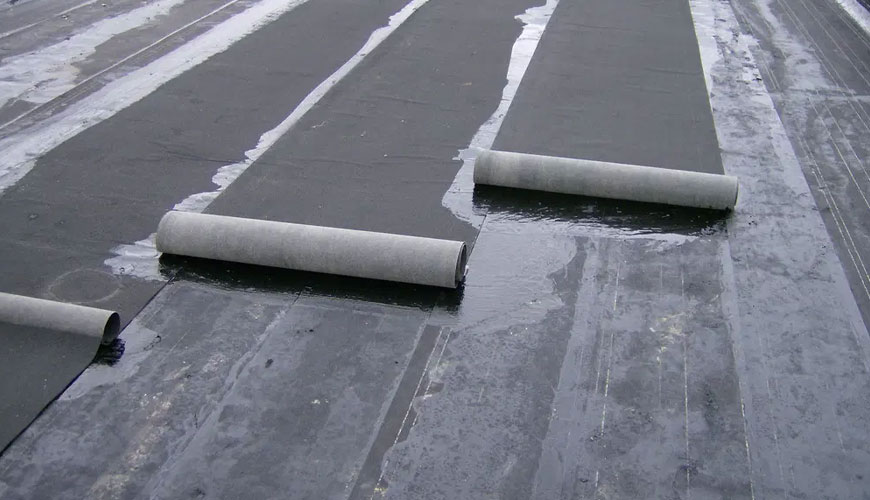

EUROLAB, with its state-of-the-art accredited laboratories and expert team, provides precise and fast testing services within the scope of EN 1850-1 testing. This European standard covers the identification of visible defects that can affect the functional behavior of bituminous sheets for roofing.

EN 1850-1 is a European standard that specifies the test method for the determination of visible defects in bituminous sheets used for roof waterproofing. The standard is part of the EN 1850 series, which covers flexible sheets for waterproofing. The test method described in EN 1850-1 involves a visual inspection of bituminous sheets under specified conditions.
Below is a summary of the test method:
Sample preparation: A representative sample of the bitumen sheets is taken and cut into 1 meter long pieces. Parts are stored in a horizontal position for at least 24 hours prior to testing.
Test Conditions: Visual inspection is carried out in a well-lit area with a minimum illumination of 1000 lux. The temperature of the area to be tested should be between 18°C and 25°C and the relative humidity should be between 30 and 70%.
Inspection Procedure: Each 1 meter long piece of bitumen sheet is visually inspected for visible defects such as bubbles, holes, cracks and delaminations. The examination is carried out with the help of a magnifying glass and a light source. The inspector should walk along the sign, keeping the control line perpendicular to the sign and at a distance of about 1 metre.
Registration Defects: The number and location of visible defects are recorded page by page.
Evaluation of Defects: Defects are evaluated according to their type and severity and are divided into three classes:
The standard specifies the maximum allowable number of defects per square meter for each class. If the number of defects exceeds the maximum allowed for a particular class, the plate cannot pass the test.
It is important to note that the EN 1850-1 standard also specifies other test methods for sampling, conditioning and packaging of bituminous sheets, as well as evaluating the physical and mechanical properties of the sheets.
EUROLAB assists manufacturers with EN 1850-1 test compliance. Our test experts, with their professional working mission and principles, provide you, our manufacturers and suppliers, the best service and controlled testing process in our laboratories. Thanks to these services, businesses receive more effective, high-performance and quality testing services and provide safe, fast and uninterrupted service to their customers.
To get an appointment, to get more detailed information or to request an evaluation, you can ask us to fill in our form and reach you.